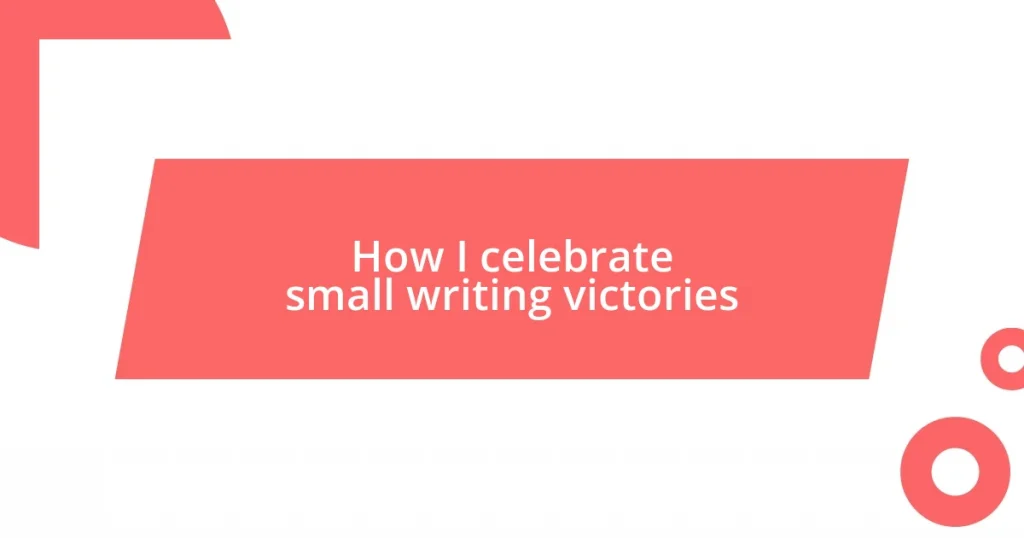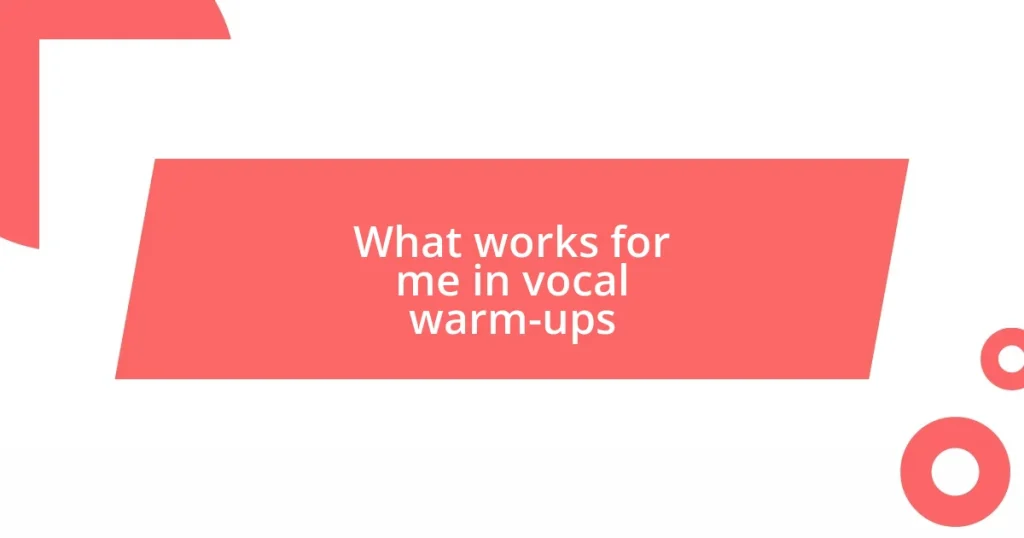Key takeaways:
- Small writing victories are essential stepping stones that validate progress and motivate writers on their journey.
- Recognizing and celebrating personal milestones fosters confidence and a supportive network among peers, enhancing the writing experience.
- Creating a reward system and documenting successes can boost motivation and accountability, transforming individual achievements into shared celebrations.
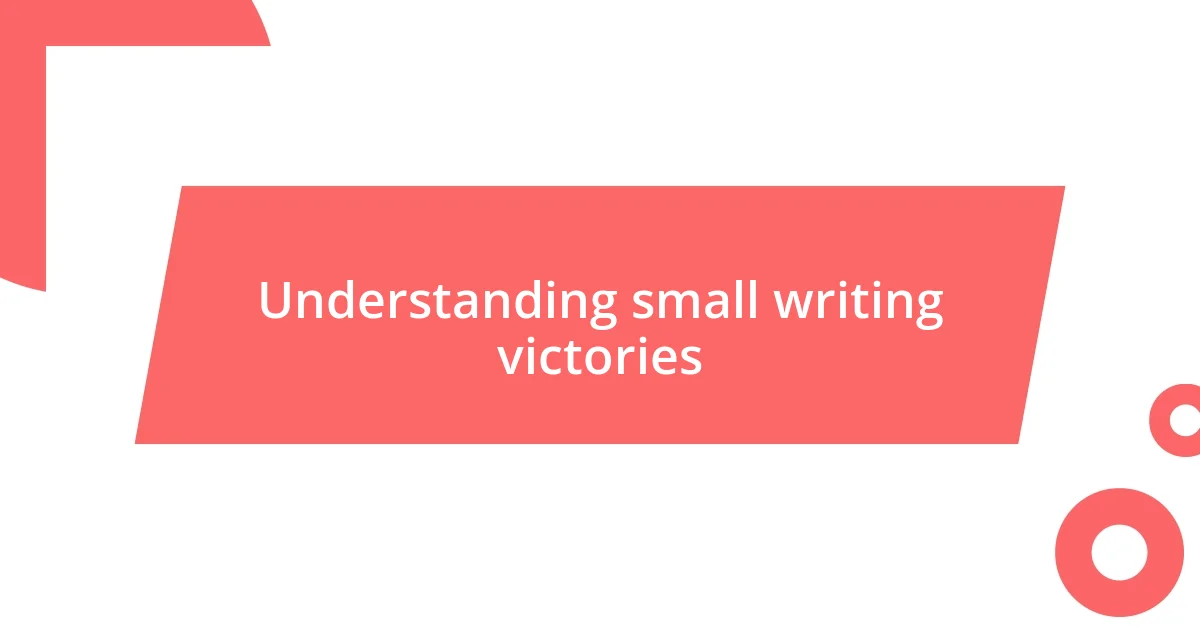
Understanding small writing victories
Small writing victories can often feel like stepping stones on a much larger journey. I remember the rush of excitement I felt the moment I typed “The End” after finishing my first short story. That single moment validated all the late nights and self-doubt I had faced. Doesn’t it feel amazing to celebrate those little wins along the way?
These victories might seem minor—like finishing a paragraph or receiving positive feedback on a blog post—but they build a foundation for larger accomplishments. I once took a moment to savor a simple compliment from a peer on a piece I wrote; it sparked a wave of motivation that propelled me to dive deeper into my writing projects. Have you ever paused to appreciate the small triumphs that keep you going?
Understanding small writing victories is about shifting our perspective; they serve as vital reminders of our progress. Think back to the last time you overcame writer’s block or found just the right word after hours of searching. Those moments aren’t just small victories; they are crucial milestones that affirm our growth and resilience as writers.
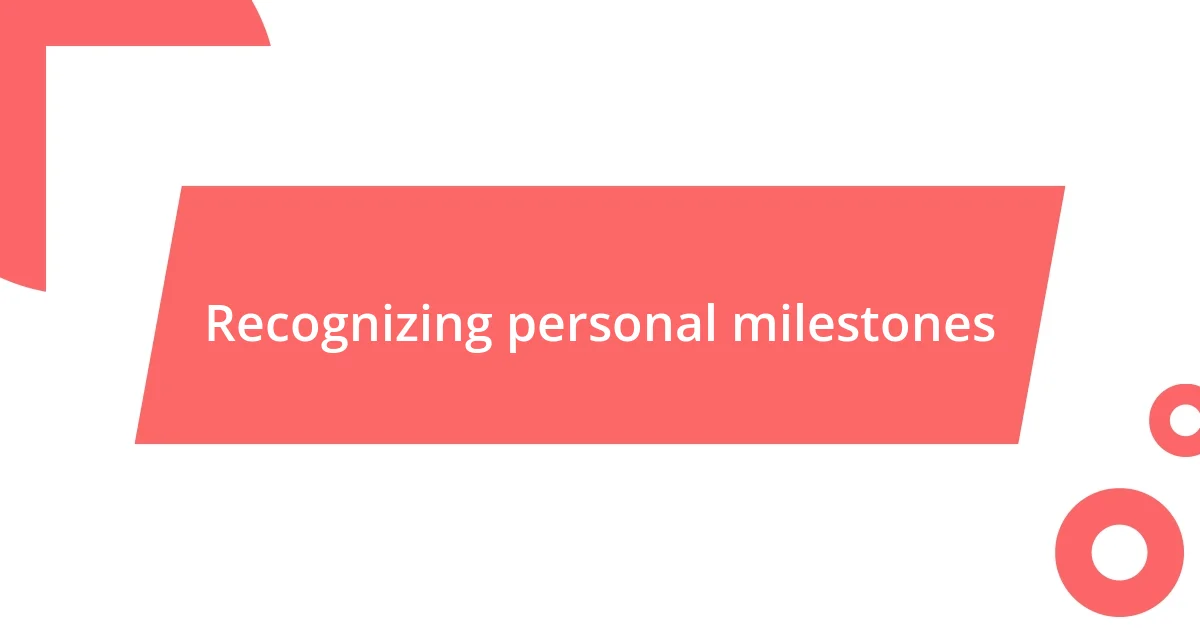
Recognizing personal milestones
Recognizing personal milestones is a deeply fulfilling experience for any writer. I vividly remember the first time I submitted a piece for publication. My heart raced as I clicked “send,” a mix of fear and hope swirling inside me. That decision not only marked a moment of courage but also signified my growth. It was a bold step towards acknowledging my voice and embracing the possibility of sharing it with the world.
Here are a few personal milestones that deserve recognition:
– Completing a first draft of a long project, like a novel or extensive article.
– Hitting a personal word count goal over an extended period.
– Receiving positive feedback from someone I admire in the writing community.
– Attending a writing workshop and participating actively.
– Finishing a challenging research phase for a more in-depth piece.
Every small celebration builds our confidence. Those moments remind me that writing is a journey, not just a destination.
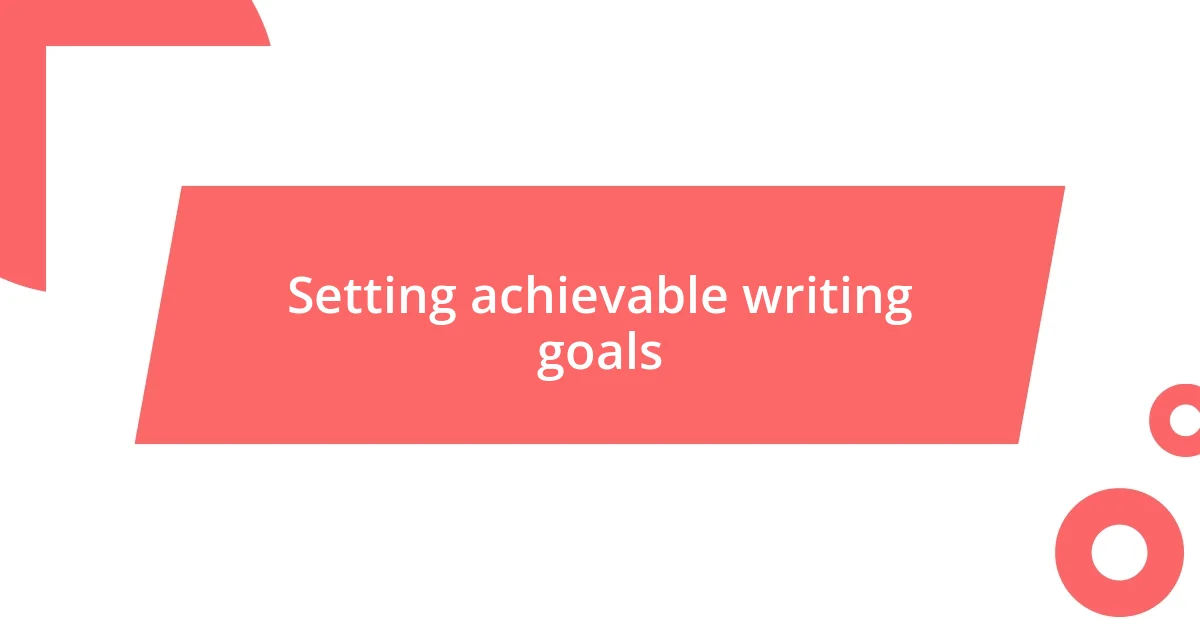
Setting achievable writing goals
Setting achievable writing goals is crucial for maintaining motivation and ensuring steady progress. I’ve found that breaking down larger projects into smaller, manageable tasks makes the writing journey feel less overwhelming. For instance, instead of aiming to write an entire book in a month, I set a goal to complete just one chapter each week. This approach not only feels attainable but also allows me to celebrate those small victories along the way.
Moreover, I like to use the SMART framework—Specific, Measurable, Achievable, Relevant, and Time-bound—when setting my goals. For example, instead of saying, “I want to write more,” I might specify, “I will write 500 words every Monday and Thursday.” This clarity helps me track my progress efficiently. I remember when I first adopted this method; the satisfaction of ticking off each completed goal not only kept me accountable but also fueled my enthusiasm for writing.
Setting achievable goals also provides an opportunity to reflect and adjust as needed. If I find that my 500-word target feels too daunting some weeks, I simply reduce it to 300 words. This flexibility has encouraged me to maintain a steady writing habit without the stress of falling behind. It’s amazing how small, thoughtful adjustments can keep the creative juices flowing!
| Goal Setting Method | Description |
|---|---|
| SMART Goals | Specific, Measurable, Achievable, Relevant, Time-bound |
| Word Count Targets | Set daily or weekly word count goals to maintain consistency |
| Breakdown of Tasks | Divide larger writing projects into smaller sections for easier management |
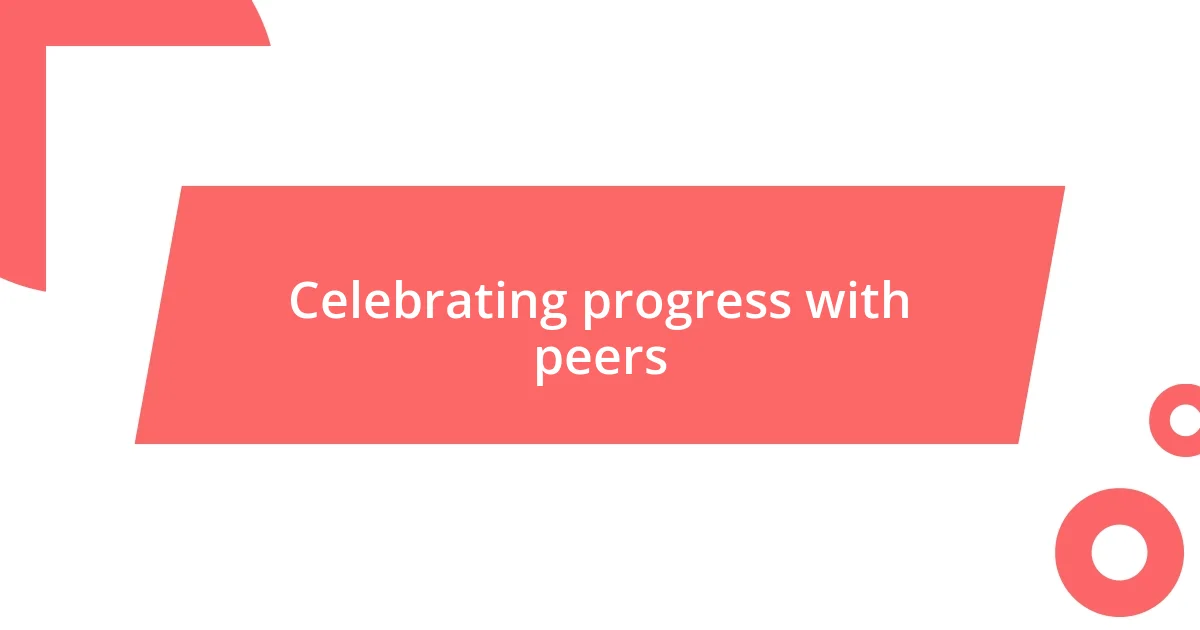
Celebrating progress with peers
Sharing our victories with peers can amplify our celebrations. I remember the joy of sending a message to my writing group after I completed my first short story. Their enthusiastic replies did wonders for my confidence—it felt like we were all winning together. These connections foster a sense of belonging, reminding us that we’re part of a broader writing community, and that shared progress enriches the journey.
I’ve found that discussing achievements, no matter how small, encourages others to share theirs too. It creates a ripple effect of positivity. One time, after I hit my word count goal for the week, a fellow writer confessed it motivated her to power through her own writing block. Isn’t it incredible how our personal moments of triumph can inspire those around us?
Engaging with peers not only celebrates individual milestones but also reinforces our commitment to our craft. By acknowledging each other’s progress, we build a supportive network that nurtures our passion. I often take a moment to raise a virtual toast during our writing calls; it’s a simple act, but it transforms the atmosphere into one of celebration. So, how have you celebrated your recent victories with your peers?
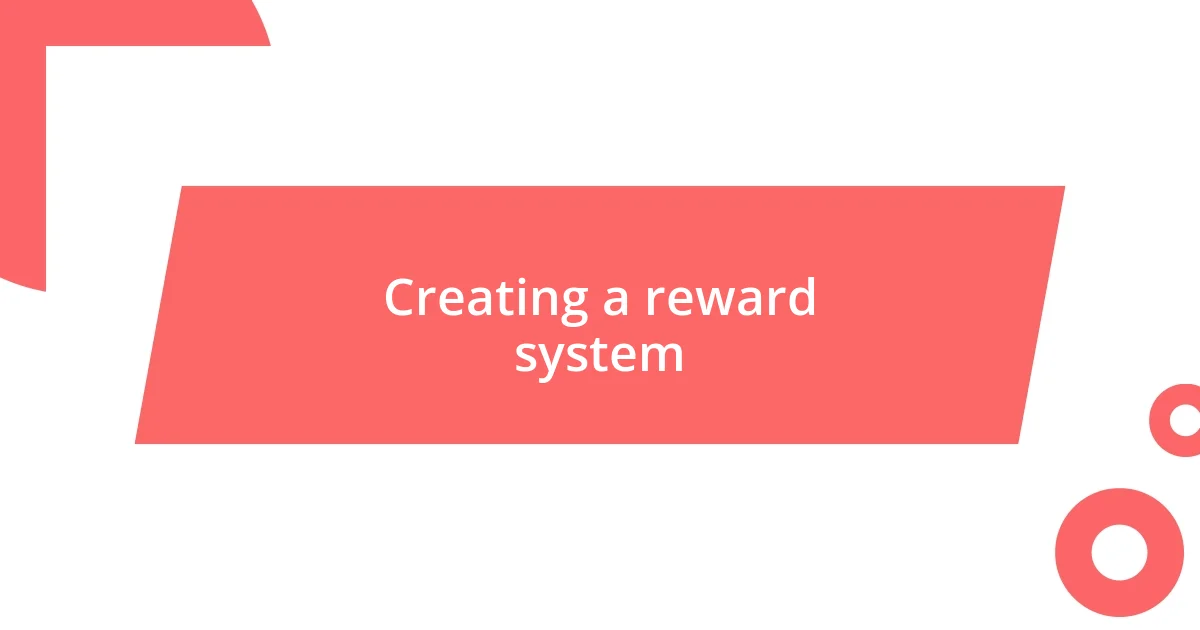
Creating a reward system
Creating a reward system has been a game-changer in my writing routine. I like to treat myself after reaching milestones—whether it’s indulging in a favorite snack or enjoying a leisurely walk outside. When I finished my first draft of a novella, I rewarded myself with a cozy movie night. The excitement of the treat made the hard work feel even more worthwhile.
What I’ve discovered is that the size of the reward doesn’t always matter; it’s about creating a moment to acknowledge the effort. For example, after a successful editing session, I allow myself to scroll through my social media, guilt-free, for half an hour. This little break helps me recharge creatively while also reinforcing that my hard work deserves recognition.
I also keep a simple checklist of rewards that I can choose from, depending on my mood. Sometimes it’s a new book I’ve been eyeing, other times it’s a relaxing day off to just breathe and reflect. Have you tried mixing up your rewards like this? The beauty of a flexible reward system is that it caters to what feels most gratifying in the moment, ensuring that each win is celebrated in a way that motivates you for the next challenge.
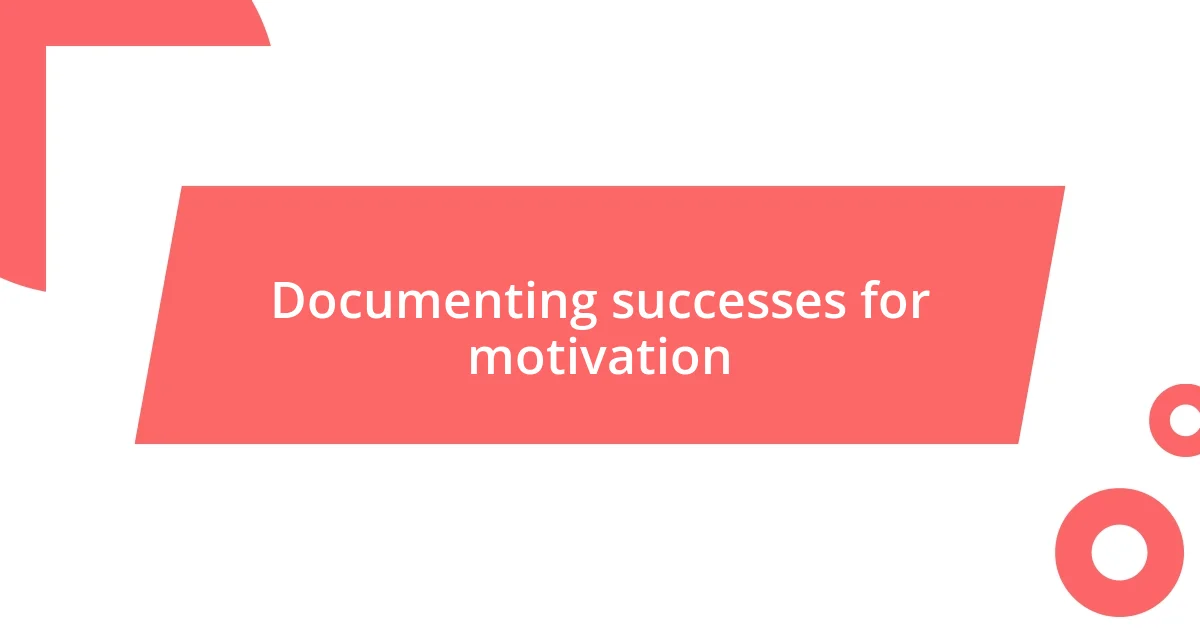
Documenting successes for motivation
Documenting successes is one of my favorite strategies for maintaining motivation in writing. After I complete a milestone—be it finishing a chapter or submitting a piece—I take a moment to jot it down in my journal. Reflecting on these moments reminds me of my growth and keeps the joy alive. It’s amazing how rereading those notes can reignite my passion, especially on days when doubt creeps in. Have you ever experienced that sudden rush of motivation from revisiting your own successes?
Sometimes, I even create visual reminders of my achievements. A few years ago, I started a “victory board” in my writing space, tacking up notes of completed projects and encouraging messages from peers. Each time I glance at it, I feel a surge of pride, knowing I’ve overcome challenges to get here. It’s not just a collection of paper; it’s a reflection of my journey. How do you celebrate your wins visually, if at all?
Documenting those small victories fosters a sense of accountability too. I find that sharing my documented successes with friends or on social media adds an extra layer of encouragement. The responses I receive often boost my motivation to press forward, especially when I see others celebrating alongside me. Isn’t it fascinating how accountability can elevate our writing experience and inspire us to chase the next goal?
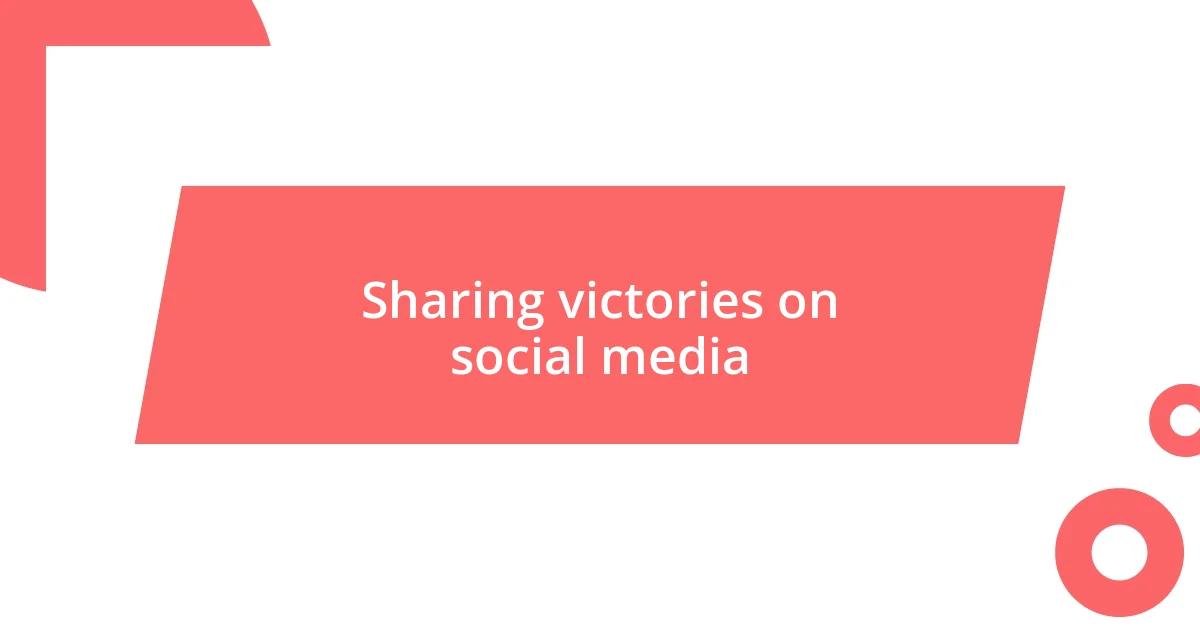
Sharing victories on social media
Sharing my victories on social media has become an essential part of my writing process. I remember the first time I posted about completing a significant draft; the wave of support I received felt like my words were given wings. It’s heartwarming to see friends and fellow writers cheer me on, and in return, I feel compelled to keep pushing myself forward. Have you ever noticed how a simple “congratulations” from others can spark a flame of determination within you?
I find that sharing my wins on platforms like Twitter or Instagram isn’t just about broadcasting success; it’s about connecting with a community. For instance, after I finished a particularly challenging short story, I tweeted about it, and to my surprise, other writers started sharing their own victories in response. This conversation turned into a delightful exchange of encouragement, reminding me that I’m not alone in my journey. Isn’t it incredible how social media can transform solitary milestones into a collective celebration?
Additionally, I often incorporate hashtags like #WritingCommunity or #AmWriting to broaden my reach and engage with like-minded individuals. Just last month, after I wrapped up a series of blog posts, I shared a snapshot with those tags, and the recognition felt electric. Each time I click “post,” I not only celebrate my small victories but also strengthen my connection with an inspiring community, reminding myself that every step forward, however small, is worth celebrating. How do you use social media to enhance your own writing journey?










